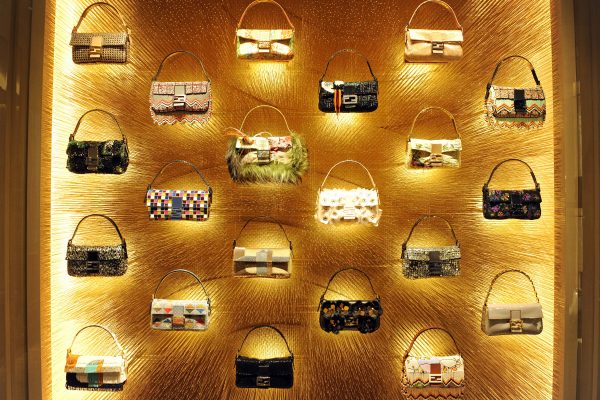While much was achieved during the so-called Islamic Golden Age, it’s also important to understand why this term may, in fact, be somewhat misleading.
While much was achieved during the so-called Islamic Golden Age, it’s also important to understand why this term may, in fact, be somewhat misleading.
The Golden Age OF ISLAM
The Islamic Golden Age was a period of cultural, economic, and scientific flourishing in the history of Muslim people, traditionally dated from the 8th century to the 14th century.
This period is traditionally understood to have begun during the Abbasid dynasty with the inauguration of the House of Wisdom, one of the largest libraries in Baghdad, the largest city in the world, somewhere between 790 and 830, and is said to have ended with the collapse of the Abbasid caliphate due to Mongol invasions and the Siege of Baghdad and the destruction of the House of Wisdom in 1258. However, some historians argue that it may have ended as late as the 16th century.
What has been achieved? How was it possible? How did it end, and what are the implications for us today? In this article, we will also debunk some common myths that have persisted until nowadays about this era which was not so ‘golden’.
In addition to this article, check out our video below on this topic as well!
Achievements in the golden age
The Golden Age gave birth to algebra, and saw huge progress in arithmetic, trigonometry, and geometry through people like Muḥammad ibn Mūsā al-Khwārizmī and Omar Khayyam – but also in pharmacy, medicine, and surgery thanks to Ibn Rushd and Ibn Sina, who played a major role in interpreting the works of Aristotle and Ibn al-Nafis, who first understood blood circulation in the body. It was the era that saw the first Islamic hospital was built in 805 in Baghdad.
There were huge advances in astronomy, physics, optics, chemistry, geodesy, hospitals, agriculture, literature, poetry, music, and architecture. Al-Biruni also wrote of his insights into light, stating that its velocity must be immense when compared to the speed of sound; and estimated the radius of the earth as 6339.6 km (modern value is 6,371 km).
Some lesser-known inventions such as by the Banū Mūsā brothers, in their Book of Ingenious Devices, described an automatic flute player which may have been the first programmable machine.
Towards the end of the era, the world also saw some of the first great explorers such as Ibn Battuta.
Many of these works that were written in this era were later translated into Latin, which gave birth to the West European Renaissance from the 13th century. Without so many of these achievements, we would be deprived of what has become today the basic knowledge which powers most technologies and institutions such as health care.
Causes and roots
There were many causes and roots of this so-called Islamic Golden Age, although there are a few main points to discuss when it comes to why this era saw an explosion of arts, literature, philosophy, science, and so much more.
Here are some of the points as to what caused the growth of the Islamic Golden Age:
- The importance of acquiring knowledge in Islam.
- The strong interest in scientific knowledge from recently conquered nations. Many classic works of antiquity that might otherwise have been lost were translated from Greek, Syriac, Middle Persian, and Sanskrit into Syriac and Arabic.
- The Caliphate’s sponsorship of scholars. The money spent on translations is estimated to be equivalent to about twice the current annual research budget of the United Kingdom’s Medical Research Council. The best scholars and notable translators had salaries that are estimated to be the equivalent of professional athletes today.
- With the introduction of paper as well, information was democratised to the extent that, for probably the first time in history, it became possible to make a living from only writing and selling books.
- A new education system.
The formal attestation of educational attainment, ijaza, instead of being granted by a particular scholar, could be now granted by an institution: the madrassa.
Madrassas were devoted to the study of law, theology, medicine, and other sciences, and were not reliant on public donations like a lot of western mosques today. They were a Waqf: a business model donated or dedicated for eternity for public use, which profits would pay salaries of professors, stipends of students, and defrayed the costs of construction and maintenance.
The University of Al Karaouine, founded in 859, is the world’s oldest degree-granting university, followed shortly by Al-Azhar in Egypt, in 978.
End of the Golden Era
In 1206, Genghis Khan established a powerful dynasty among the Mongols of Central Asia, which culminated with the destruction of Baghdad and the House of Wisdom by Hulagu Khan in 1258. This event has been seen by some as the end of the Islamic Golden Age.
However, some historians argue that the caliphate was already on its last legs with the emergence of new elites who lost respect for the caliphs, and internal divisions, more provincial leaders in quest of establishing hereditary power. As a result of these internal fights for wealth and power, the payoff of producing scientific work decreased.
Some historians put the endpoint at 1492 and the end of Islam in Andalusia, some others towards the 16th century with the advent of the Ottoman and Mughal empires. We like to think of the Golden era as a time of peace, prosperity, and harmony, however this was not really the case.
A not-so-Golden Era
While much was achieved during the so-called Islamic Golden Age, it’s also important to understand why this term may, in fact, be somewhat misleading.
The concept of a Golden Age, in fact, does not come from Muslims but from the West
People at the time weren’t like: Oh SubhanAllah I’m living in the Golden Age! The metaphor of a golden age finds its roots in 19th-century Orientalist literature about Islamic history.
The author of a Handbook for Travelers in Syria and Palestine in 1868 observed that the most beautiful mosques of Damascus were relics of “the golden age of Islam”. It is therefore a Western Construct put in parallel with the West European Renaissance.
The Golden Age had its share of darkness
Since colonialism, the slave trade, and Islamophobia in the West, many have romanticised the Golden Age with the nostalgia for an era when Muslims were prosperous, respected, powerful, and established a unique land of peace and multiculturalism.
But poverty and hunger still existed during that time. And there were oppression against Zoroastrians in Persia and against Shi’a Muslims, who were blamed for the siege of Baghdad. Scholars were not perfect either. While Ibn Khaldun is celebrated for being the ‘father’ of sociology, he also wrote explicitly racist opinions on Black people.
There were other Golden eras
By solely focusing on the Islamic Golden Age of a specific region, it in turn overshadows the progress made in other parts of the world such as West Africa with Mansa Musa in the 13-14th centuries, in the empire of Mali and the richest man to have existed, and other advances such as the University of Timbuktu.
Some people would argue that the Ottoman Empire or the flourishing of Islam in South East and East Asia were also ‘golden’ periods of history.
It’s not only men, but many women have also contributed to the flourishing of sciences
While we tend to focus on the likes of the great men scholars like Muḥammad ibn Mūsā al-Khwārizmī, Omar Khayyam, Ibn Rushd, Ibn Sina, and Ibn Battuta, rarely are women discussed when speaking about this era.
For example, Fatima al-Fihri established, in the year 859, the Qarawiyin mosque – the first university in the world. Or Mariam “Al-Astrolabiya” Al-Ijliya who was a crafted astrolabe manufacturer; or Queen Amina of Zaria, gifted with strong strategic and engineering skills, who founded the kingdom of Zazzau in nowadays northern Nigeria thanks, known for her wall strategy.
There were so many incredible Muslim women – across the region – who were an integral part of the flourishing of Islam.
Most scholars were born with a silver spoon
While we tend to think of the great scholars of this era as hardworking, groundbreaking men (and women) who worked from humble origins, we must also remember this: the heroes of the Golden Age that history remembers were quite privileged in the first place.
If you wanted to work on a particular scientific topic, but was born in a poor family of shepherds far from any university, it would have been a struggle for you to study and produce any work. People like Ibn Rushd of Ibn Sina were coming from nobility, or powerful and wealthy families. They had privileged access to education, money, powerful networks, and could travel easily. They also had powerful platforms already ready to publicise their works.
While this doesn’t diminish their incredible work, it is worth remembering how and why they – in particular – are remembered today.
Conclusion
We may not realise it, but what if we are living in a Golden Age?
With information available anywhere at any time, the ease and reduced cost of production, the widespread accessibility of knowledge, and the level of education of Muslims worldwide, anything seems possible. Muslims have come from decades of survival in the West, after colonisation, the slave trade, indenture, exile, migrations, and thanks to generations of hard work, people are overall wealthier, more educated and more creative, more resourceful than ever.
The only problem is how the Western Eurocentric agenda accepts the presence and culture of Muslims. Many face barriers such as racism and Islamophobia but still, Muslims are pioneering in many fields such as medicine, sports, technology, mathematics, social sciences, and human rights – without compromising on their morals and dominant powers.
In conclusion, the question remains as we look forward: Will we be using our skills, imagination, and resources towards meaningful purposes, and the betterment of society?





